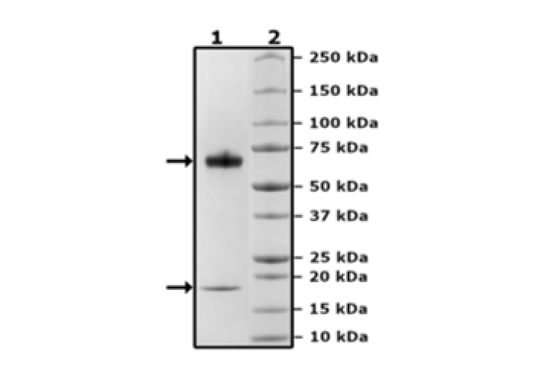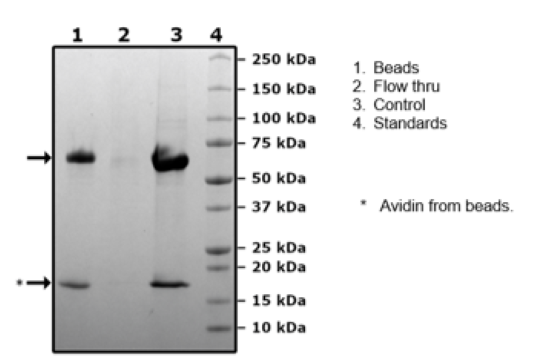PCSK9 (D374Y) His-Avi-Tag, Biotin-Labeled Recombinant
Recombinant human PCSK9 (Human proprotein convertase subtilisin/kexin 9) encompassing amino acids 31-692, which comprise the protodomain, the catalytic, and the C-terminal domains. The construct contains a C-terminal His-tag (6xHis) followed by an Avi-tag™. The protein contains the potent gain of function D374Y mutation. The protein was affinity purified.
≥90%
Aqueous buffer solution.
8 mM phosphate, pH 7.4, 110 mM NaCl, 2.2 mM KCl, and 20% glycerol
This protein is enzymatically biotinylated using Avi-Tag™ technology. Biotinylation was confirmed to be ≥90%.
For more information on enzymatic biotinylation, please see our Tech Note.
PCSK9 (Proprotein convertase subtilisin/kexin type 9) functions as a negative regulator of hepatic low-density lipoprotein receptors (LDLRs) by binding to the LDLR ectodomain. The D374Y mutation is a gain of function mutation. The D374Y mutation is associated with hypercholesterolemia. This PCSK9 mutant is more potent at decreasing LDL uptake than wild-type PCSK9, most likely by increasing the binding affinity of PCSK9 for the LDLR. A deeper understanding of the function of this mutant protein and development of specific inhibitors may result in new therapeutic approaches for PCSK9 D374Y-linked diseases.




